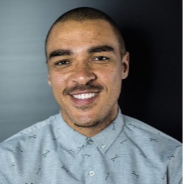The stage is set for Rocket League to take off in a big way this year. San Diego based developer Psyonix has pledged a sum of $2.5m into developing the title as an esport. The Rocket League Championship Series (RLCS) 3 is now underway, and there’ll be more tournaments springing up alongside this too.

Ahead of his speaker slot at Escon Europe in London on April 5th we spoke with Psyonix’s Esports Operations Manager Josh Watson to talk about building an esports title as an indie developer, securing commercial deals and football clubs entering Rocket League.
Esports Insider: $2.5 million into the competitive scene…do you agree that one major pro for Rocket League to continue to grow as a legitimate esports title is more consistent competitions year round to back up the RLCS?
Josh: Absolutely! We’ve always planned to introduce more ways for our players to compete and we think it’s time to prove why we believe Rocket League is the most exciting new esport in the world. While we are very proud of the Rocket League Championship Series, we recognise that for a sport to grow there must be a vibrant community of competitors at all levels and places for those competitors to play. We think this investment is a great first step in making that goal a reality.
Esports Insider: What can indie developers learn from Psyonix’s success with Rocket League?
Josh: In many ways, we feel like we are still learning from Rocket League’s success. One of the things that has been crucial to us is to look at our relationship with our community as a two-way conversation.
“We recognise that for a sport to grow there must be a vibrant community of competitors at all levels and places for those competitors to play”
Gamers are incredibly passionate and creative, and it’s good when developers can recognise that community feedback is not something to be tolerated, but instead an endless well of thoughtful ideas to make the game better. It’s that mindset of collaboration with your community that can have a really positive impact on your game.
Esports Insider: Have you been surprised that football clubs (bar Valencia) haven’t signed teams or players in Rocket League? Especially the likes of Schalke and PSG who are doing more than just FIFA…
Josh: It’s not too surprising, Rocket League as an esport is still relatively young when compared to some of the games those teams are investing in.
“We wouldn’t be surprised if we see many more high profile teams interested in being part of the action”
The first year for us was our chance to prove that Rocket League has the potential to be one of the biggest esports in the world. Now that we’ve completed two successful seasons and established Rocket League Esports as a proven sport, we wouldn’t be surprised if we see many more high profile teams interested in being part of the action.
Esports Insider: Is Rocket League better placed than other titles to appeal to the masses and in turn attract commercial sponsors? Recent deals with Brisk and Old Spice suggest yes…
Josh: Rocket League has a lot of unique qualities that help set it apart from the other popular esports titles.
Firstly, we have one of the very few high-action competitive titles that is suitable for all ages to play and watch. As you might imagine, this is a huge plus for potential sponsors. Next, due to its direct parallels to traditional sports, Rocket League as an esports is universally understood and enjoyable.
“We have one of the very few high-action competitive titles that is suitable for all ages to play and watch”
While other esports revolve around phenomenal games, it’s often easier to understand the action if you have played them, and that barrier of entry is just not an issue with Rocket League. Those points, coupled with a rapidly growing and passionate fan-base, are really exciting to potential sponsors.
Esports Insider: Why did you decide to speak and get involved with this year’s Escon Europe in April?
Josh: In many ways, esports is still a fledgling industry. While we think we’ve made a lot of progress in making Rocket League a leader in esports, there is still a lot we can learn from each other. Game development has always been an industry of collaboration and sharing ideas, and esports is no different.
Esports Insider: How important is to not just listen but act upon the feedback you receive as a developer from players and the wider community?
Josh: In all aspects of game development, including esports, it is incredibly important to not only listen to the community but act upon that feedback.
“If you were a chef and everyone who tasted your food said it was too spicy to finish, you might go a bit easier on the cayenne the next time”
I like to equate our industry to other professions; if you were a chef and everyone who tasted your food said it was too spicy to finish, you might go a bit easier on the cayenne the next time. There is really no difference in development. At the end of the day we are creating a product for the consumer, so it makes perfect sense that you want to listen to their concerns and tailor the game or esport to their feedback.

